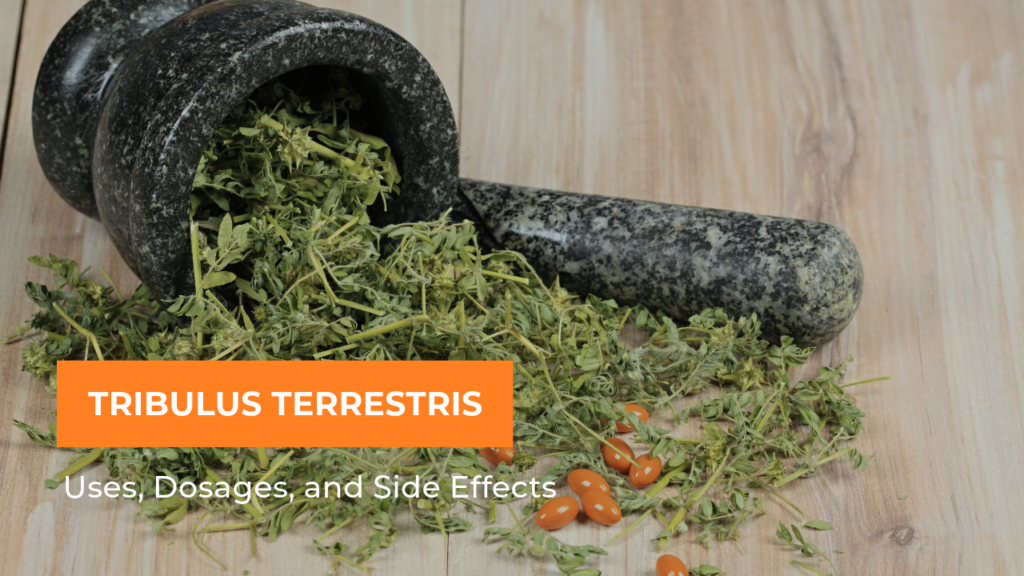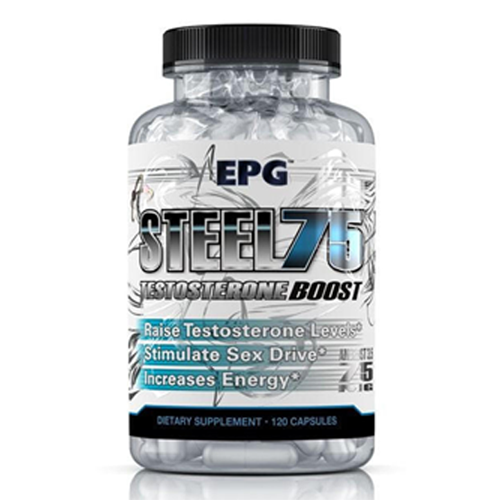In the quest for a natural solution to male enhancement, one herb stands out for its potent effects and long-standing reputation – Tribulus Terrestris. This powerful plant, also known as puncture vine or Gokshura, has been used for centuries in traditional Indian and Chinese medicine to treat various ailments, including erectile dysfunction. In this comprehensive guide, we will delve into the phytopharmacological properties of Tribulus Terrestris, exploring its benefits, mechanisms of action, and potential side effects.

Section 1: Understanding Tribulus Terrestris
1.1 What is Tribulus Terrestris?
Tribulus Terrestris is a flowering plant belonging to the Zygophyllaceae family. It is native to warm temperate and tropical regions and is widely distributed across the world. The plant is characterized by its spiny fruits and small yellow flowers.
1.2 Historical Use of Tribulus Terrestris
Tribulus Terrestris has a long history of use in traditional medicine systems. In Ayurveda, it is considered a powerful herb for enhancing male sexual health and vitality. Chinese medicine also recognizes the herb for its ability to tonify the kidneys and improve sexual function. (2)
1.3 Chemical Constituents of Tribulus Terrestris
Tribulus Terrestris contains a variety of chemical constituents that contribute to its medicinal properties. These include flavonoids, flavonol glycosides, steroidal saponins, and alkaloids. These compounds work synergistically to provide the herb’s therapeutic effects. (3)
Section 2: Pharmacological Properties of Tribulus Terrestris
2.1 Aphrodisiac Effects
One of the most well-known benefits of Tribulus Terrestris is its aphrodisiac properties. Studies have shown that the herb can enhance sexual desire and improve erectile function. This effect is believed to be due to the herb’s ability to increase testosterone levels and improve blood flow to the genital area. (4)
2.2 Testosterone Boosting
Tribulus Terrestris has been found to stimulate the production of testosterone, a key hormone involved in male sexual health and vitality. By enhancing testosterone levels, the herb can improve libido, muscle strength, and overall sexual performance. (1)
2.3 Anti-inflammatory and Analgesic Effects
In addition to its effects on sexual health, Tribulus Terrestris has been found to possess anti-inflammatory and analgesic properties. These effects make it a potentially valuable herb for relieving pain and inflammation associated with various conditions.
2.4 Immunomodulatory Activity
Research suggests that Tribulus Terrestris may have immunomodulatory effects, meaning it can help regulate the immune system. This can potentially boost overall immune function and protect against infections and diseases.
Section 3: Tribulus Terrestris and Erectile Dysfunction
3.1 Mechanisms of Action
Tribulus Terrestris exerts its effects on erectile dysfunction through multiple mechanisms. It increases the production of nitric oxide, a molecule that helps relax and dilate blood vessels, improving blood flow to the penis. Additionally, it enhances testosterone levels, which play a crucial role in sexual function.
3.2 Clinical Evidence
Several studies have investigated the efficacy of Tribulus Terrestris in treating erectile dysfunction. These studies have shown promising results, with significant improvements in erectile function, libido, and overall sexual satisfaction.
3.3 Dosage and Administration
To experience the benefits of Tribulus Terrestris for erectile dysfunction, it is important to follow the recommended dosage guidelines. Consultation with a healthcare professional is advisable to determine the optimal dosage for individual needs.
Section 4: Potential Side Effects and Precautions
4.1 Safety Profile
Tribulus Terrestris is generally considered safe for most individuals when taken in appropriate doses. However, some individuals may experience mild side effects such as gastrointestinal discomfort or skin irritation.
4.2 Drug Interactions
Tribulus Terrestris may interact with certain medications, including antihypertensive drugs and anticoagulants. It is important to consult with a healthcare professional before starting any supplementation to avoid potential interactions.
Section 5: Choosing and Using Tribulus Terrestris Supplements
5.1 Selecting a Quality Supplement
When choosing a Tribulus Terrestris supplement, it is essential to select a reputable brand that adheres to quality standards and uses standardized extracts. Look for products that have been tested for purity and potency.
5.2 Recommended Dosage and Administration
The recommended dosage of Tribulus Terrestris for max test boost may vary depending on the form and concentration of the supplement. It is important to follow the product’s instructions and consult with a healthcare professional for personalized guidance.
Tribulus Terrestris, also known as Puncture vine, is an annual medicinal plant that belongs to the Zygophyllaceae family. This incredible plant in Immortal AF has been used for generations in traditional medicine systems around the world for its numerous health benefits. In this article, we will explore the fascinating properties of Tribulus Terrestris and its potential applications in improving various aspects of human health.
1. Introduction to Tribulus Terrestris
Tribulus Terrestris, commonly referred to as Puncture vine, is a small, hirsute or silky hairy shrub that grows to a height of 10-60 cm. It is primarily found in Mediterranean and sub-tropical regions such as India, China, South America, Mexico, Spain, Bulgaria, and Pakistan. The plant found in Pink Magic is characterized by its opposite leaves, ax-shaped fruits, and slender, fibrous roots. For thousands of years, the fruits and roots of Tribulus Terrestris have been used as a folk medicine in China, India, Sudan, and Pakistan for their remarkable medicinal properties. (10)
2. Traditional Uses of Tribulus Terrestris
Tribulus Terrestris has a rich history of traditional use in various cultures around the world. In traditional Chinese medicine, it was considered a top-grade medicine and was listed in the earliest extant Chinese pharmaceutical monograph, “Shen Nong Ben Cao Jing.” The fruits of Tribulus Terrestris have been used in China for tonifying the kidneys, testosterone support, improving eyesight, and treating skin pruritus, headache, and vertigo. In India, the fruits have been used to treat infertility, impotence, erectile dysfunction, and low libido in Ayurveda. The roots and fruits of Tribulus Terrestris are also believed to have cardiotonic properties. In Sudan, it has been used as a demulcent and in the treatment of inflammatory disorders. Additionally, Tribulus Terrestris has been used for its diuretic and uricosuric effects in Pakistan.
3. Phytochemical Composition of Tribulus Terrestris
Tribulus Terrestris contains a wide range of bioactive phytochemicals that contribute to its pharmacological activities. The plant has been extensively studied, and various compounds have been identified, including steroidal saponins, flavonoids, glycosides, phytosterols, tannins, terpenoids, amide derivatives, amino acids, and proteins. Among these constituents, steroidal saponins and flavonoids are considered the most important metabolites with diverse bioactivities. (11)
3.1 Steroidal Saponins
Tribulus Terrestris is particularly rich in steroidal saponins, with over 100 different types of saponins identified. These include spirostanol and furostanol saponins, such as protodioscin and protogracillin. These steroidal saponins are believed to be responsible for the unique biological activities of Tribulus Terrestris. They have been associated with anti-inflammatory, anti-aging, and aphrodisiac properties.
3.2 Flavonoids
Flavonoids are another important group of phytochemicals found in Tribulus Terrestris. The plant contains derivatives of quercetin, kaempferol, and isorhamnetin. Quercetin and its derivatives have been shown to possess antioxidant, anti-inflammatory, and anti-cancer properties. Kaempferol and isorhamnetin derivatives also exhibit various biological activities, including antioxidant and anti-atherosclerotic effects.
3.3 Other Phytochemicals
Apart from steroidal saponins and flavonoids, Tribulus Terrestris contains other bioactive compounds. These include alkaloids, organic acids, amino acids, and other substances. Alkaloids such as tribulusamide C and harmine have been isolated from the plant and exhibit various pharmacological activities. Organic acids like benzoic acid and vanillic acid, as well as amino acids like alanine and threonine, have also been identified in Tribulus Terrestris.
4. Pharmacological Activities of Tribulus Terrestris
Tribulus Terrestris has been extensively studied for its pharmacological activities, and numerous benefits have been attributed to its consumption. Let’s explore some of the key pharmacological activities of this remarkable plant. (12)
4.1 Enhancement of Sexual Function
One of the most well-known benefits of Tribulus Terrestris is its ability to improve sexual function in both men and women. The plant has been traditionally used as an aphrodisiac and has been found to increase sexual desire and improve fertility. Tribulus Terrestris in Kangaroo Male Enhancement is believed to exert its effects by increasing testosterone levels and regulating key pathways involved in sexual function.
In studies conducted on animals, Tribulus Terrestris extracts have been shown to enhance sexual function, massive erections, and behavior by increasing testosterone levels and activating specific signaling pathways. These findings suggest that Tribulus Terrestris may be beneficial in the treatment of erectile dysfunction and low libido.
4.2 Anti-inflammatory and Anti-aging Effects
Tribulus Terrestris has been found to possess significant anti-inflammatory and anti-aging properties. The steroidal saponins and flavonoids present in the plant have been shown to inhibit inflammatory mediators and reduce oxidative stress. These compounds can help protect against age-related diseases, such as cardiovascular disorders and neurodegenerative conditions.
4.3 Antioxidant Activity
The antioxidant activity of Tribulus Terrestris has been extensively studied. The phytochemicals present in the plant, particularly flavonoids and steroidal saponins, exhibit potent antioxidant effects like legal post cycle therapy. These compounds scavenge free radicals and protect cells from oxidative damage, thereby reducing the risk of chronic diseases and promoting overall well-being.
4.4 Anti-diabetic Effects
Studies have demonstrated that Tribulus Terrestris extracts possess anti-diabetic properties. The plant has been shown to regulate blood glucose levels and improve insulin sensitivity. Tribulus Terrestris extracts inhibit alpha-glucosidase, an enzyme involved in carbohydrate metabolism, and reduce postprandial glucose levels. These findings suggest that Tribulus Terrestris may be a valuable natural remedy for managing diabetes.
4.5 Cardiovascular Protection
Tribulus Terrestris has been traditionally used for the prevention and treatment of cardiovascular diseases. The plant has been found to have cardioprotective properties, including the ability to protect against myocardial ischemia and reperfusion injury. Tribulus Terrestris extracts have been shown to improve coronary flow, protect against oxidative stress, and modulate key signaling pathways involved in cardiac health.
4.6 Neuroprotective Effects
The neuroprotective effects of Tribulus Terrestris have also been investigated. The plant has been found to protect against cerebral ischemia-reperfusion injury and reduce neuronal damage. Tribulus Terrestris extracts exhibit anti-inflammatory and antioxidant effects, which contribute to their neuroprotective properties. These findings suggest that Tribulus Terrestris may have potential applications in the treatment of neurodegenerative conditions. (13)
5. The Promising Future
Tribulus Terrestris, with its rich phytochemical composition and diverse pharmacological activities, holds great promise for human health and well-being. The plant’s long history of traditional use and the growing body of scientific research support its potential therapeutic applications. From enhancing sexual function to protecting against chronic diseases, Tribulus Terrestris offers a myriad of benefits that make it a valuable addition to natural medicine. As more research is conducted, we can expect to uncover even more remarkable properties of this extraordinary plant. Incorporating Tribulus Terrestris into our daily lives may be a step towards achieving optimal health and vitality.
Section 6: Conclusion
In conclusion, Tribulus Terrestris is a powerful herb with a long history of use in traditional medicine for male enhancement. Its aphrodisiac effects, testosterone-boosting properties, and potential benefits for erectile dysfunction make it a popular choice among individuals seeking natural solutions. However, it is important to consult with a healthcare professional before starting any supplementation to ensure safety and efficacy.
Remember, natural remedies should not replace professional medical advice, and it is crucial to address the underlying causes of erectile dysfunction with a comprehensive approach that includes lifestyle modifications and appropriate medical interventions. Tribulus Terrestris can be a valuable addition to a holistic approach to male sexual health and vitality.




